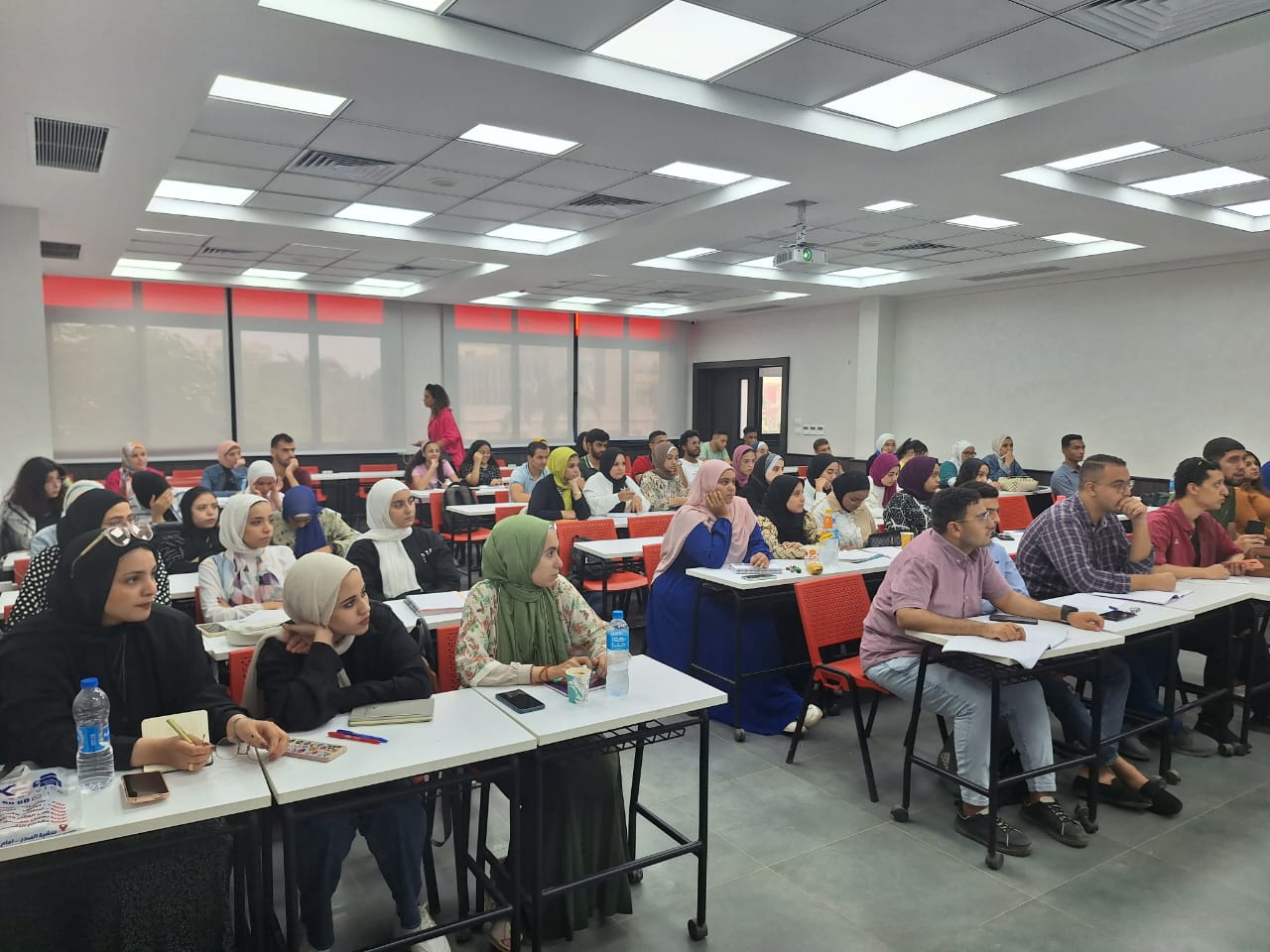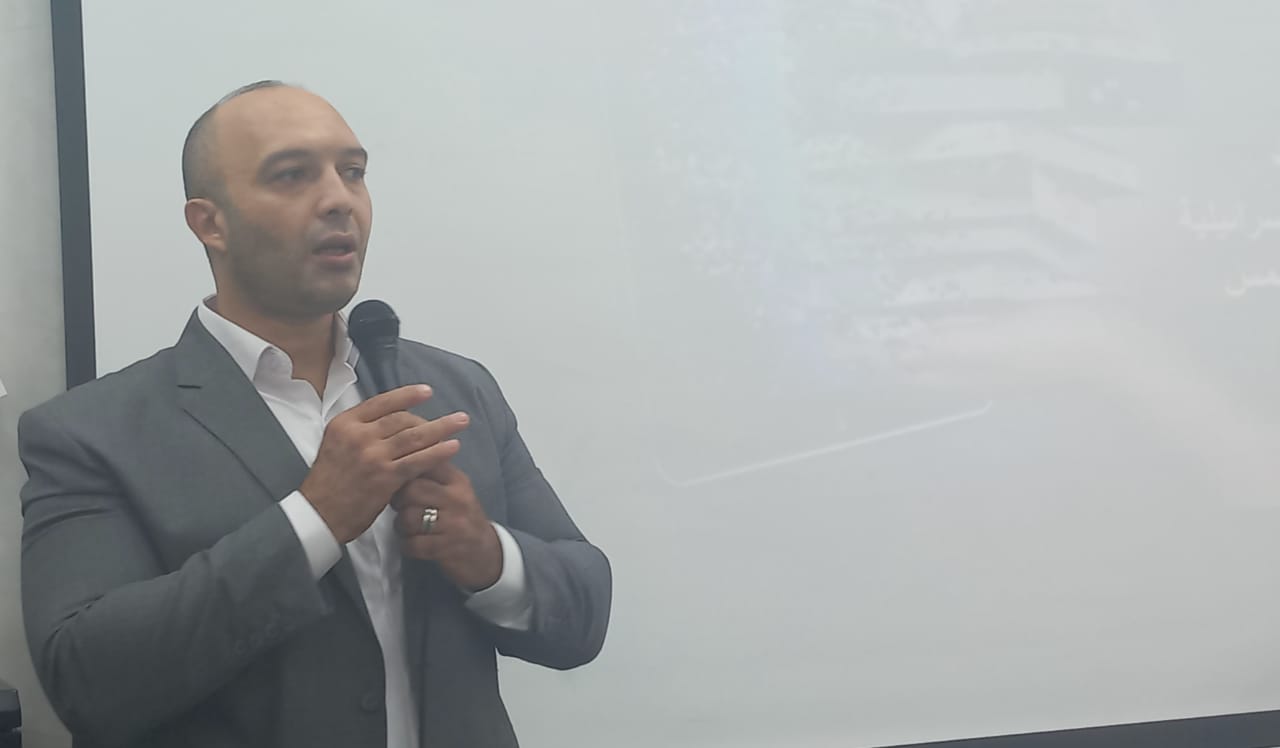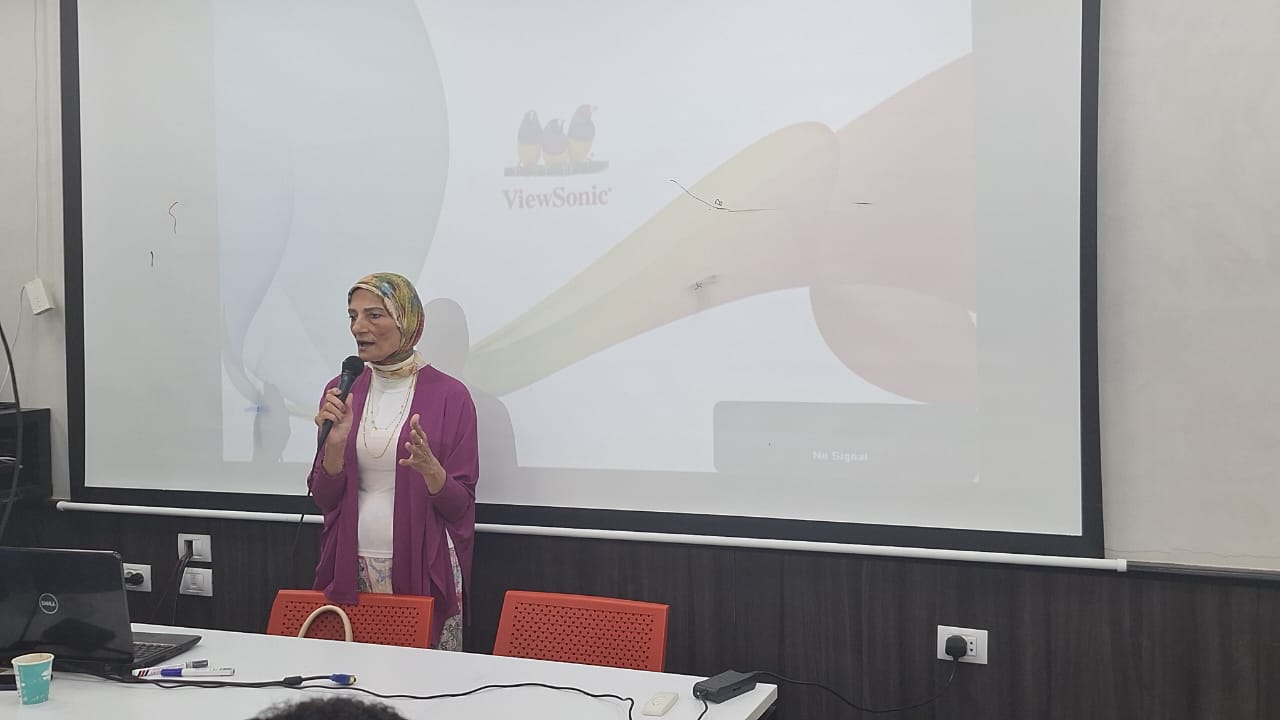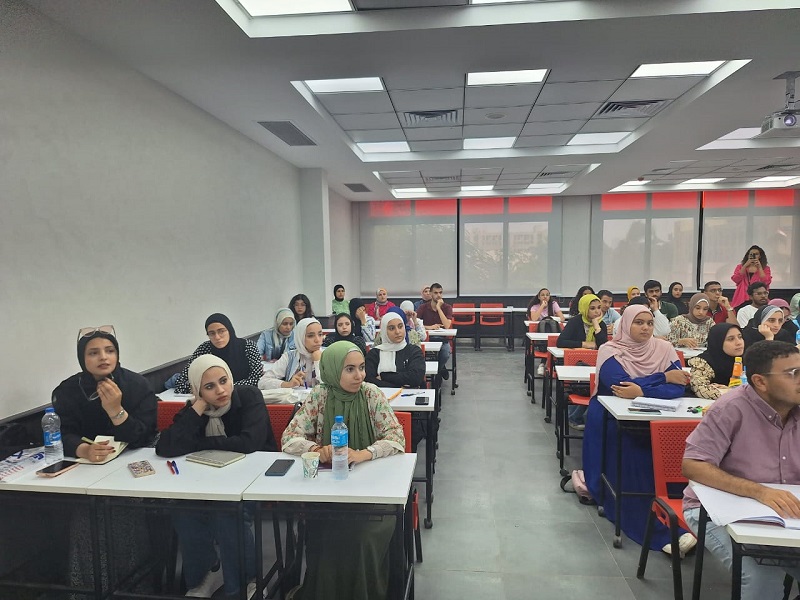A workshop entitled: “Journalistic translation skills from Hebrew to Arabic” at the Faculty of Arts
Under the patronage of Prof. Hanan Kamel, Dean of the Faculty of Arts, Ain Shams University, under the supervision of Prof. Muhammad Ibrahim, Vice Dean of the College for Education and Student Affairs, the Hebrew Language Department, headed by Prof. Samia Jumaa, organized a workshop entitled “Journalistic Translation Skills from Hebrew to Arabic,” in light of the dangerous circumstances that the region is going through, and the state of vigilant follow-up of everything reported by the Israeli media at this time.
Dr. Muhammad Abboud, lecturer of Hebrew language and literature, and a member of the Egyptian team that translated the October War documents, which were issued in 8 parts by the National Council for Translation, lectured at the workshop, delivered a lecture.
Dr. Hanan Kamel, Dean of the Faculty of Arts, said that the workshop is the first in this field, but it will not be the last, pointing out that it agrees with the mission of the Faculty of Arts, Ain Shams University, in dealing with the issues of the homeland and the issues of the Arab nation, especially with regard to Israeli affairs, in which the Faculty of Arts has A long history of confronting the other and revealing his plans.
For her part, Prof. Samia Gumaa said that the workshop is free, and aims to raise the level of familiarity with the Hebrew language and translator mechanisms. It is the first practical workshop to be held in the program for the 2023/2024 academic year, which will also include practical workshops on religious, literary and Talmudic terminology, and Palestinian issues.
The workshop addressed the problems of translating from Hebrew in the Arab press and media, starting with the problems of translating and Arabizing Zionist terms, and ridding the translated texts of the biased and colored Israeli narrative, while maintaining the fidelity and accuracy of the translation.
The workshop revealed that the Hebrew press played, and continues to play, a dangerous role in the Israeli media arena, and indirectly influences the formulation of some media messages in the region.
 |
 |
 |
||
Dr. Muhammad Abboud explained that 85 daily newspapers have been published in Israel since its inception, 51 newspapers in Hebrew, 10 in Arabic, and other newspapers in the original languages of the settlers who did not digest the Hebrew language, and their connection to their first country remained closely linked.
At the beginning of the workshop, the lecturer shed light on the most important printed newspapers and the most important news platforms in Israel, the trends of each of these platforms, and the extent of their connection to funding agencies and ruling institutions in Israel.
Abboud stressed that Israel is not an oasis of freedom of opinion and expression, as Zionist propaganda claims, explaining that the Military Publications Control Authority controls every line published in the Hebrew press, especially on security topics, secret foreign relations, the Israeli nuclear file, and other media warnings that increase war time.
Abboud pointed out that the recent aggressive war on the Gaza Strip revealed the extent of the guidance carried out by military oversight officers in Israel, which reached the point of forcing a military editor on Israeli television to deny himself, and to retract a video report revealing that the Israeli occupation army was the one who bombed the Baptist Hospital.
Dr. Muhammad Abboud explained that Israeli military censorship interventions sometimes amount to dismissing journalists from their jobs, preventing them from working in the media, and destroying their professional futures, as happened in many cases. Military censorship is supervised by a senior officer from the Israeli army known as the military sergeant, and all materials must be presented to him. Journalists and media professionals on critical issues, and he is the one who approves or rejects publication in such cases.
The workshop addressed a number of important media issues in preparing a journalistic translator, such as types of journalistic writing, introductions to major writers and influencers in Israel, and an analysis of their political orientations.
The lecturer set seven basic conditions that must be met by a newspaper translator from Hebrew.
The workshop stressed the need for the translator from Hebrew to avoid the risk of falling into the Israeli narrative. Dr. Muhammad Abboud explained that the Israeli media deliberately uses a number of selective terms to express everything related to events related to Israel, the Israeli occupation army, Israeli foreign relations, and others. In the process of laundering terms similar to money laundering, the goal of this process is to manipulate global public opinion and obscure Arab public awareness.
Abboud stressed that the translator of the Hebrew language should not be a tool for conveying these false terms into the Arabic language, so as not to contribute to the brainwashing of Arab readers.
Dr. Muhammad Abboud touched on dozens of Hebrew terms that have invaded our Arab media, explaining their connotations and dimensions, including, but not limited to: local frustration operations instead of assassinating Palestinians, the Temple Mount instead of the Noble Sanctuary, the Wailing Wall instead of the Buraq Wall, the regions of Judea and Samaria. Instead of West Bank areas, kidnapped Israelis instead of prisoners because that has different legal connotations.


.svg)




